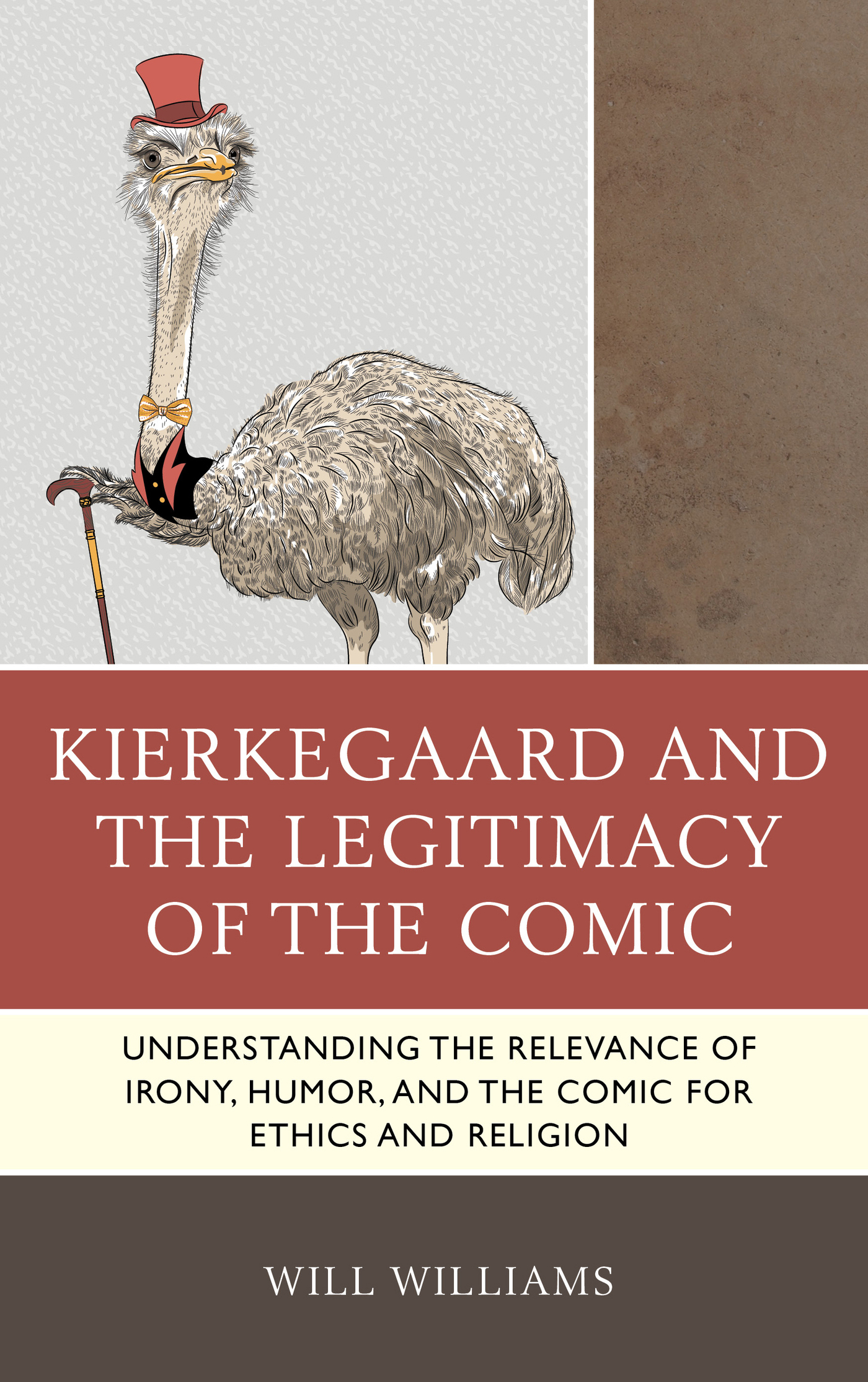Kierkegaard and the
Legitimacy of the Comic
Kierkegaard and the
Legitimacy of the Comic
Understanding the Relevance of Irony, Humor, and the Comic for
Ethics and Religion
Will Williams
LEXINGTON BOOKS
Lanham Boulder New York London
Published by Lexington Books
An imprint of The Rowman & Littlefield Publishing Group, Inc.
4501 Forbes Boulevard, Suite 200, Lanham, Maryland 20706
www.rowman.com
Unit A, Whitacre Mews, 26-34 Stannary Street, London SE11 4AB
Copyright 2018 by The Rowman & Littlefield Publishing Group, Inc.
All rights reserved. No part of this book may be reproduced in any form or by any electronic or mechanical means, including information storage and retrieval systems, without written permission from the publisher, except by a reviewer who may quote passages in a review.
British Library Cataloguing in Publication Information Available
Library of Congress Cataloging-in-Publication Data Available
LCCN 2018949986 | ISBN 978-1-4985-7714-4 (hardback : alk. paper) | ISBN 978-1-4985-7715-1 (ebook)
 TM The paper used in this publication meets the minimum requirements of American National Standard for Information Sciences Permanence of Paper for Printed Library Materials, ANSI/NISO Z39.48-1992.
TM The paper used in this publication meets the minimum requirements of American National Standard for Information Sciences Permanence of Paper for Printed Library Materials, ANSI/NISO Z39.48-1992.
Printed in the United States of America
To Lesley-Anne
Amor gignit amorem
Acknowledgments
There are several people who have helped to make this book possible. I am grateful to my colleagues and mentors, in the fields of both theology and philosophy, for their advice, helpful challenges, and insight over the years. In particular, I am grateful to Steve Evans, Paul Martens, and Ralph Wood of Baylor University, both for their time and for their examples of thoughtful scholarship.
A special word of thanks is owed to the Howard V. and Edna H. Hong Kierkegaard Library at St. Olaf College in Northfield, Minnesota. Gordon Marino has offered me much advice and encouragement, while fostering a hospitable environment for scholarship. I am especially grateful for the generosity of the Kierkegaard House Foundation, whose fellowship provided me with needed time and resources to edit and research for this project. My thanks go to Erik Hong and Andy Burgess, whose generosity to me has been freely given and gratefully received.
I am grateful to my family for their encouragement of my scholarship over the years. My heartfelt thanks go to my wife, Lesley-Anne, who has facilitated my research with her insight and her warm support of my efforts.
Credits
The Concept of Irony. Translated by Howard V. and Edna H. Hong. Princeton: Princeton University Press, 1989. Copyright 1989 by Howard V. Hong. Reprinted by permission of Postscript, Inc.
Concluding Unscientific Postscript. Translated by Howard V. and Edna H. Hong, vols. 12. Princeton: Princeton University Press, 1992. Copyright 1992 by Howard V. Hong. Reprinted by permission of Postscript, Inc.
The Corsair AffairandArticles Related to the Writings. Translated by Howard V. and Edna H. Hong. Princeton: Princeton University Press, 1982. Copyright 1982 by Howard V. Hong. Reprinted by permission of Postscript, Inc.
Prefaces/Writing Sampler. Translated by Todd W. Nichol. Princeton: Princeton University Press, 1997. Copyright 1997 by Todd W. Nichol. Reprinted by permission of Postscript, Inc.
Sren Kierkegaards Journals and Papers. Edited and translated by Howard V. and Edna H. Hong, assisted by Gregor Malantschuk, vols. 16, vol. 7 Index and Composite Collation. Bloomington and London: Indiana University Press, 19671978. Copyright 19671978 by Howard V. Hong. Reprinted by permission of Postscript, Inc.
Upbuilding Discourses in Various Spirits. Translated by Howard V. and Edna H. Hong. Princeton: Princeton University Press, 1993. Copyright 1993 by Howard V. Hong. Reprinted by permission of Postscript, Inc.
Abbreviations
The following list indicates works of Sren Kierkegaard in translation.
CA | The Concept of Anxiety. Translated by Reidar Thomte in collaboration with Albert B. Anderson. Princeton: Princeton University Press, 1980. |
CI | The Concept of Irony. Translated by Howard V. and Edna H. Hong. Princeton: Princeton University Press, 1989. |
COR | The Corsair Affair and Articles Related to the Writings. Translated by Howard V. and Edna H. Hong. Princeton: Princeton University Press, 1982. |
CUP 1 | Concluding Unscientific Postscript, vol. 1. Translated by Howard V. and Edna H. Hong. Princeton: Princeton University Press, 1992. |
CUP 2 | Concluding Unscientific Postscript, vol. 2. Translated by Howard V. and Edna H. Hong. Princeton: Princeton University Press, 1992. |
EO1 | Either/Or, Part I. Translated by Howard V. and Edna H. Hong. Princeton: Princeton University Press, 1987. |
EO2 | Either/Or, Part II. Translated by Howard V. and Edna H. Hong. Princeton: Princeton University Press, 1987. |
EUD | Eighteen Upbuilding Discourses. Translated by Howard V. and Edna H. Hong. Princeton: Princeton University Press, 1990. |
FT | Fear and Trembling. Translated by Howard V. and Edna H. Hong. Princeton: Princeton University Press, 1983. |
JFY | Judge For Yourself! Translated by Howard V. and Edna H. Hong. Princeton: Princeton University Press, 1990. |
JP | Sren Kierkegaards Journals and Papers. Edited and translated by Howard V. and Edna H. Hong, assisted by Gregor Malantschuk, vols. 16, vol. 7 Index and Composite Collation. Bloomington and London: Indiana University Press, 19671978. |
P | Prefaces/Writing Sampler. Translated by Todd W. Nichol. Princeton: Princeton University Press, 1997. |
PC | Practice in Christianity. Translated by Howard V. and Edna H. Hong. Princeton: Princeton University Press, 1991. |
PF | Philosophical Fragments. Translated by Howard V. and Edna H. Hong. Princeton: Princeton University Press, 1985. |
POV | The Point of View including On My Work as an Author and The Point of View for My Work as an Author, and Armed Neutrality. Translated by Howard V. and Edna H. Hong. Princeton: Princeton University Press, 1998. |
R | Repetition. Translated by Howard V. and Edna H. Hong. Princeton: Princeton University Press, 1983. |
SLW | Stages on Lifes Way. Translated by Howard V. and Edna H. Hong. Princeton: Princeton University Press, 1988. |
TA | Two Ages: The Age of Revolution and the Present Age. A Literary Review. Translated by Howard V. and Edna H. Hong. Princeton: Princeton University Press, 1978. |
UDVS | Upbuilding Discourses in Various Spirits |
Next page
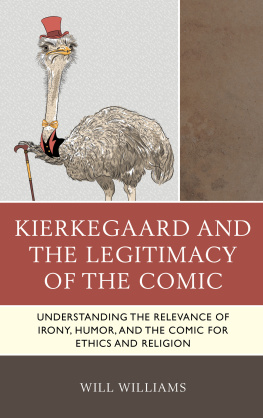



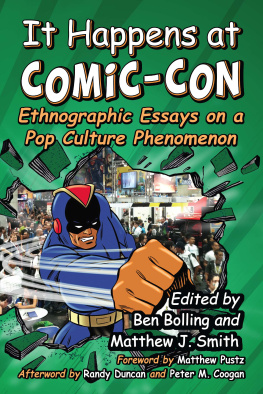
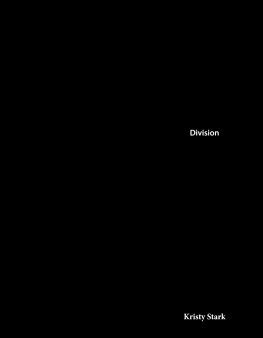


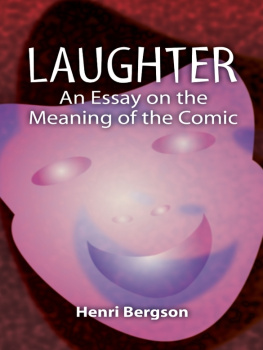
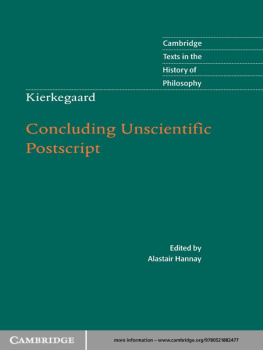
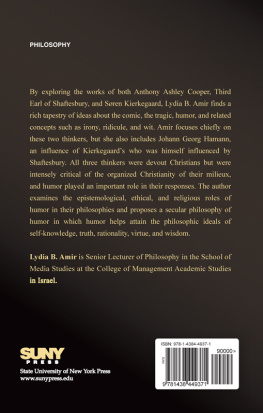
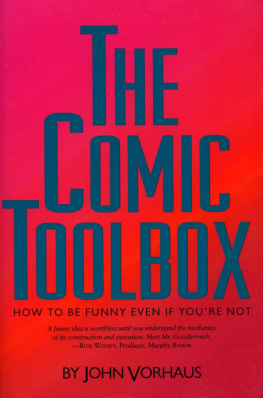
 TM The paper used in this publication meets the minimum requirements of American National Standard for Information Sciences Permanence of Paper for Printed Library Materials, ANSI/NISO Z39.48-1992.
TM The paper used in this publication meets the minimum requirements of American National Standard for Information Sciences Permanence of Paper for Printed Library Materials, ANSI/NISO Z39.48-1992.